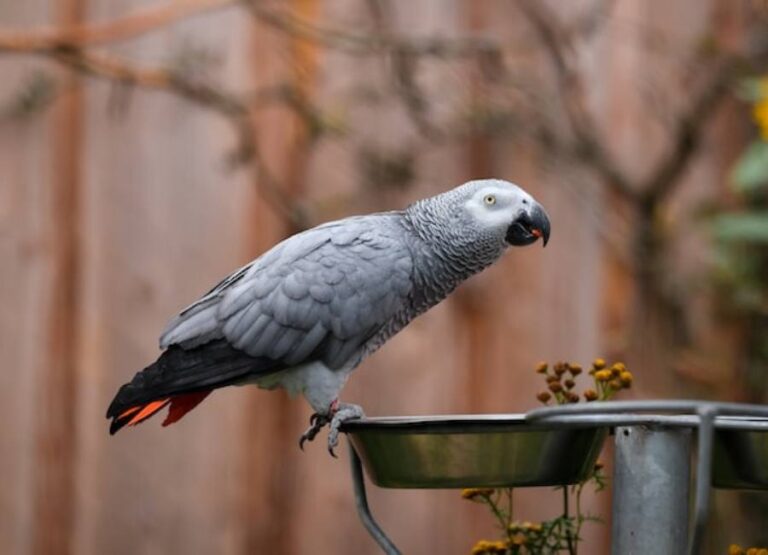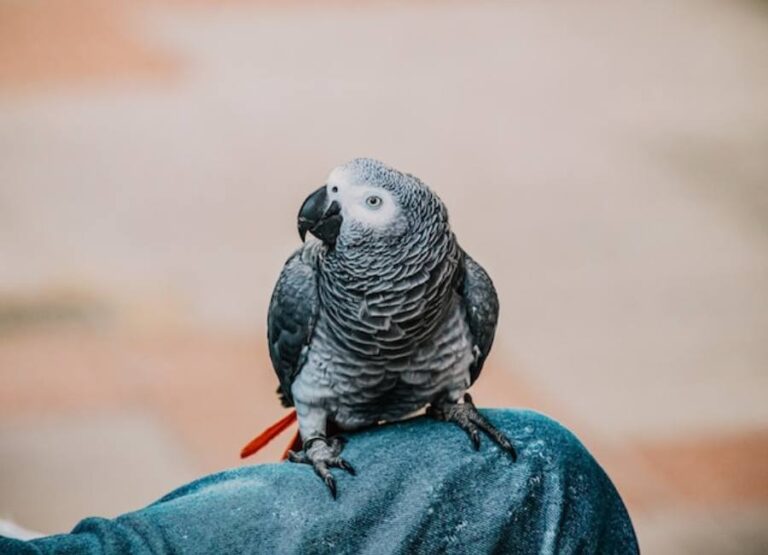10 Common African Grey Parrot Health Issues
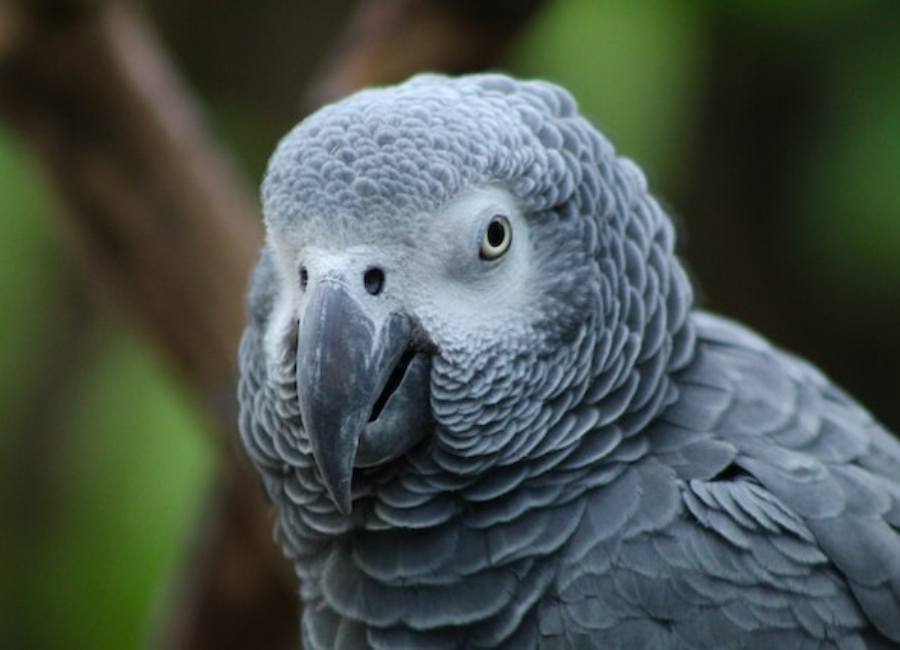
If you’ve ever had the pleasure of spending time with an African Grey Parrot, you’ll know that they are one of the most intelligent and fascinating birds out there.
However, with great intelligence comes great responsibility, and African Greys are prone to a few health issues that all owners should be aware of.
In this article, we’ll explore some of the most common African Grey Parrot health issues and give you some tips on how to keep your feathered friend healthy and happy.
So grab a cup of tea and let’s dive in!
African Grey Parrot Health Issues
Like any pet, the African grey parrot is prone to a range of health issues. Common problems include feather plucking, malnutrition, respiratory infections, and psittacosis.
It is important to provide a balanced diet, regular vet check-ups, and a clean living environment to help prevent these issues.
In case of any health concerns, it is recommended to consult with a veterinarian who specializes in avian medicine.
Let’s break it down…
The following are some of the most common African grey parrot health issues:
1. Psittacosis
Psittacosis, also known as parrot fever, is a bacterial infection that can affect both birds and humans. It is usually spread through the inhalation of infected dust or droppings.
African grey parrots are particularly susceptible to this infection, and it is considered to be one of the most common health problems they can face.
Symptoms of psittacosis in African grey parrots may include respiratory distress, lethargy, loss of appetite, diarrhea, and feather abnormalities.
The infection can also lead to potentially fatal complications such as pneumonia and sepsis if left untreated.
Treatment typically involves a course of antibiotics such as doxycycline, which can be administered orally or through injection.
Preventative measures include maintaining good hygiene practices, proper ventilation, and disinfecting of bird cages and equipment.
Quarantine of new birds before introducing them into a flock is also recommended to prevent the spread of infection.
2. Aspergillosis
Aspergillosis is a common health problem in African grey parrots. It is caused by a fungus called Aspergillus, which can grow in the respiratory system and cause a wide range of symptoms.
The fungus can get into the bird’s system through contaminated food or bedding, or through inhalation.
Symptoms of Aspergillosis in African grey parrots include difficulty breathing, lethargy, loss of appetite, and weight loss.
Treatment typically involves antifungal medication and supportive care, such as feeding and hydration.
Prevention is key and can be accomplished by maintaining a clean environment free of mold and using high-quality, uncontaminated food and bedding.
It is important to seek veterinary care if you suspect your African grey parrot has Aspergillosis or any other health problem.
3. Feather Plucking or Feather Picking
Feather plucking or feather picking is one of the most common health problems observed in African grey parrots.
This behavior is characterized by the bird plucking out its own feathers, leading to feather loss and skin irritation.
There can be numerous underlying causes for this behavior, including stress, boredom, poor diet, fungal infections, and hormonal imbalances.
Symptoms of feather plucking include patches of missing feathers, skin irritation, and baldness.
If the behavior is left untreated, it can lead to severe feather destruction and open wounds.
Treatment of feather plucking depends on identifying and addressing the underlying cause of the behavior.
This may involve providing a more balanced diet, reducing stress through environmental enrichment and socialization, medication to treat underlying infections or hormonal imbalances, and behavior modification techniques.
Prevention of feather plucking in African grey parrots involves providing a stimulating and enriched environment, a balanced diet, proper socialization, routine veterinary care, and addressing any issues promptly.
4. Proventricular Dilatation Disease (PDD)
Proventricular Dilatation Disease (PDD) is a fatal inflammatory disease that affects the nervous system and digestive systems of African grey parrots.
It has been identified as one of the most common African Grey Parrot Health Problems.
The exact cause of the disease is unknown, but it is thought to be associated with viral infection and immunodeficiency.
Symptoms of PDD in African greys include weight loss, regurgitation, vomiting, diarrhea, and abnormal droppings.
African Greys may also show neurological symptoms such as weakness, tremors, seizures, and changes in behavior.
Diagnosis of PDD is made through a combination of clinical signs, radiography, endoscopy, histopathology, and molecular testing.
Treatment for PDD is mainly supportive and involves managing the symptoms.
There is currently no cure or prevention for PDD. However, efforts are being made to develop a vaccine for birds.
Preventative measures include good hygiene, proper quarantine and testing for new birds introduced to a flock, and regular veterinary checkups for early detection.
Early intervention is important for the management of PDD and to increase the chances of survival for affected birds.
5. Beak and Feather Disease (BFD)
Beak and Feather Disease (BFD) is one of the most common health problems affecting African grey parrots.
BFD is caused by a virus that slowly attacks the immune system of parrots, and is often referred to as “Bird AIDS” due to similarities with the human disease.
Symptoms of BFD include abnormal growth and beak shape, feather discoloration, feather loss, and susceptibility to infections.
Unfortunately, there is no known cure for BFD, and treatment involves working to keep the African grey comfortable and healthy with supportive care such as proper nutrition and medication.
It is recommended that pet owners take preventative measures, like regularly testing and isolating infected African grey, disinfecting cages and surrounding areas, and avoiding contact with infected birds.
Early diagnosis is crucial for the best chances of successful treatment.
6. Fatty Liver Disease
Fatty Liver Disease is one of the most common health problems in African Grey Parrots.
This condition is caused by the accumulation of fat deposits in the liver, which can lead to liver failure.
Symptoms may include lethargy, difficulty breathing, and loss of appetite.
Treatment may involve dietary changes, including reducing fat intake and increasing exercise.
Prevention of Fatty Liver Disease in African Grey Parrots can be achieved by providing a healthy and balanced diet, regular exercise, and avoiding high-fat foods.
It is important to consult with a veterinarian if you suspect your African Grey Parrot is experiencing any health problems.
7. Papillomatosis
Papillomatosis, also known as avian viral papillomatosis, is one of the most common health problems affecting African grey parrots.
It is a viral infection that causes the formation of small, wart-like growths on the bird’s skin, beak, or mucous membranes.
The virus responsible for the condition is known as Pacheco’s disease virus.
The causes of papillomatosis in African grey parrots are not entirely clear.
It is believed that the virus is transmitted between birds through contact with infected feces, saliva, or other bodily fluids.
The virus can also be transmitted through contaminated food, water, or equipment.
Symptoms of papillomatosis in African grey parrots include the development of small, raised growths on the bird’s skin, beak, mouth, or throat.
These growths may be white, gray, or brown in color and can vary in size.
Other symptoms may include fatigue, lethargy, loss of appetite, weight loss, and difficulty breathing or swallowing.
Treatment for papillomatosis in African grey parrots typically involves supportive care, such as providing fluids to prevent dehydration and offering nutritious food to maintain the bird’s strength.
In some cases, antiviral medications may be prescribed to help fight the infection.
Surgery may also be necessary to remove large growths that are causing difficulty for the bird.
Prevention of papillomatosis in African grey parrots involves good hygiene and sanitation practices, such as regularly cleaning cages, feeding containers, and water dishes.
Quarantining and testing new African grey before introducing them to an existing flock can also help prevent the spread of the virus.
Regular veterinary check-ups can also help detect and treat the condition early on.
8. Heavy Metal Poisoning
Heavy Metal Poisoning is one of the most common health problems observed in African grey parrots.
It is caused by the ingestion of heavy metals like lead or zinc, which can be found in items such as paint, solder, or certain types of metal hardware.
Symptoms of heavy metal poisoning include nervousness, weakness, tremors, weight loss, and seizures.
Treatment for heavy metal poisoning involves removing the bird from the source of contamination and providing supportive care such as intravenous fluids and nutrition.
Chelation therapy, which involves the administration of medication to remove metal ions from the bloodstream, may also be necessary in severe cases.
Prevention is key in managing heavy metal poisoning in African grey parrots.
Owners are advised to avoid using any materials or products that contain heavy metals and to provide their birds with safe and appropriate toys and accessories.
Regular veterinary check-ups can also help to identify any signs of heavy metal poisoning early on, so that treatment can be initiated promptly.
Avian Bornavirus (ABV) is a viral disease that affects the nervous system of birds, including African grey parrots.
It is believed to be one of the most common health problems affecting African Grey Parrots.
The exact causes of ABV are unknown, but it is thought to be transmitted through the feces, saliva, and nasal secretions of infected birds.
The symptoms of ABV can be quite variable but may include weight loss, diarrhea, vomiting, regurgitation, and neurological signs such as tremors, loss of balance, and seizures.
There is no specific treatment for ABV, but supportive care can help manage symptoms and improve the bird’s quality of life.
Treatment may include anti-inflammatory medications, fluids, and nutritional support.
In severe cases, euthanasia may be necessary to prevent further suffering.
Prevention of ABV is critical, and strict quarantine protocols should be implemented for newly acquired birds.
It is also important to maintain good hygiene practices and minimize exposure to other birds, especially in large aviaries or breeding facilities.
Regular check-ups with an avian veterinarian can help detect ABV early and ensure prompt treatment.
10. Vitamin A Deficiency and Calcium Deficiency
Vitamin A deficiency and calcium deficiency are among the most common health problems in African grey parrots.
Vitamin A deficiency can result in upper respiratory infections, decreased activity, and weight loss.
Calcium deficiency can lead to weak bones, seizures, and egg binding in female birds.
These deficiencies can be caused by a diet that lacks variety, imbalanced nutrition, or poor absorption of nutrients due to underlying health conditions.
Treatment may involve dietary changes, supplements, and additional veterinary care.
Preventive measures such as ensuring a varied and balanced diet can help mitigate these health problems in African grey parrots.
Consultation with a veterinarian is recommended for proper diagnosis, treatment, and prevention.
Find out more about identifying a sick African grey parrot.
FAQs
What are some common health issues that African Grey Parrots face?
African Grey Parrots are prone to a few common health issues such as respiratory infections, feather picking, and obesity. They are also susceptible to avian polyomavirus and psittacine beak and feather disease (PBFD).
How can I prevent respiratory infections in my African Grey Parrot?
To prevent respiratory infections, it’s important to keep your African Grey’s cage clean and well-ventilated. Avoid exposing your bird to cigarette smoke, air fresheners, and other strong odors. Make sure your bird gets a balanced diet and avoid excess humidity.
What causes feather picking in African Grey Parrots?
Feather picking can be caused by a variety of factors such as boredom, stress, and poor nutrition. Parasites, infections, and allergies can also cause feather picking.
How can I prevent my African Grey Parrot from becoming overweight?
To prevent obesity, make sure your African Grey gets plenty of exercise and doesn’t overeat. Provide your bird with a balanced diet that includes fresh fruits and veggies, along with limited amounts of nuts and seeds.
What is avian polyomavirus and how can I prevent it?
Avian polyomavirus is a contagious virus that can affect many species of birds, including African Grey Parrots. To prevent infection, keep your bird’s environment clean and avoid contact with other birds that may be infected.
Is psittacine beak and feather disease (PBFD) common in African Grey Parrots?
Unfortunately, yes. PBFD is a serious viral disease that can be fatal in African Grey Parrots. The best way to prevent infection is to avoid contact with other birds and to have your bird tested regularly by an avian veterinarian.
Conclusion
In conclusion, African Grey parrots are amazing pets, but they also require special care to ensure their health and well-being.
By understanding and addressing common health issues, such as feather plucking, respiratory infections, and malnutrition, you can help your feathered friend live a long and happy life.
Remember to always keep a close eye on your parrot’s behavior and seek veterinary care when necessary.
With proper care, your African Grey can be a cherished and beloved companion for years to come.

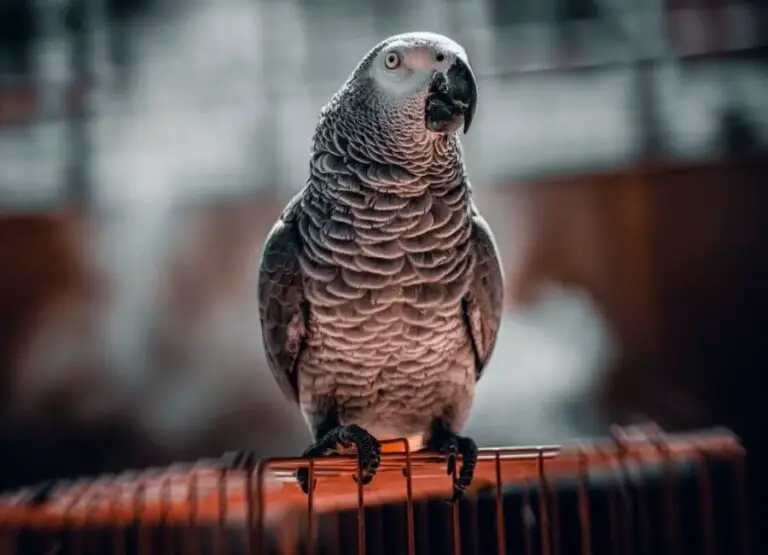
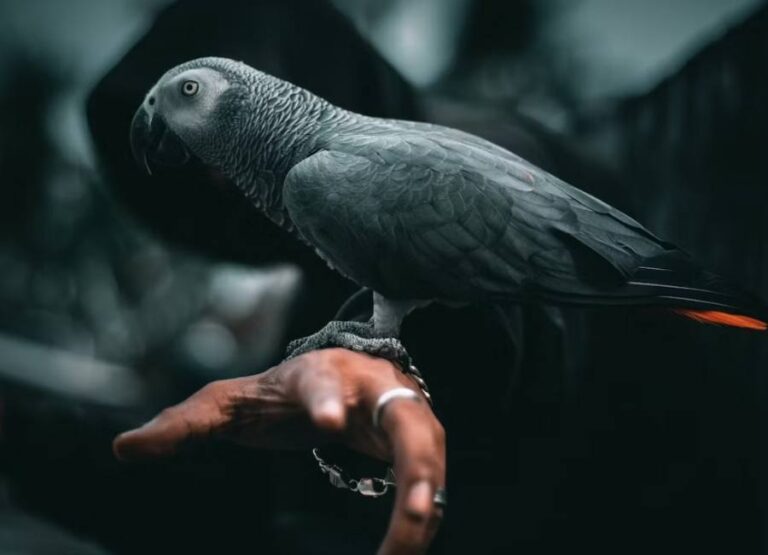
![Why is my African Grey Aggressive [11 Reasons] Why is my African Grey Aggressive](https://petcreeks.com/wp-content/uploads/2023/06/Why-is-my-African-Grey-Aggressive-768x555.jpg)
